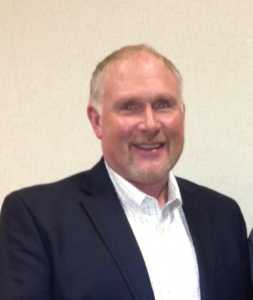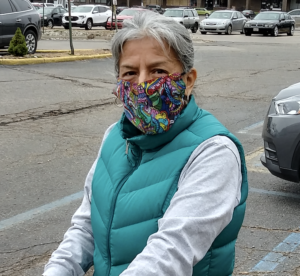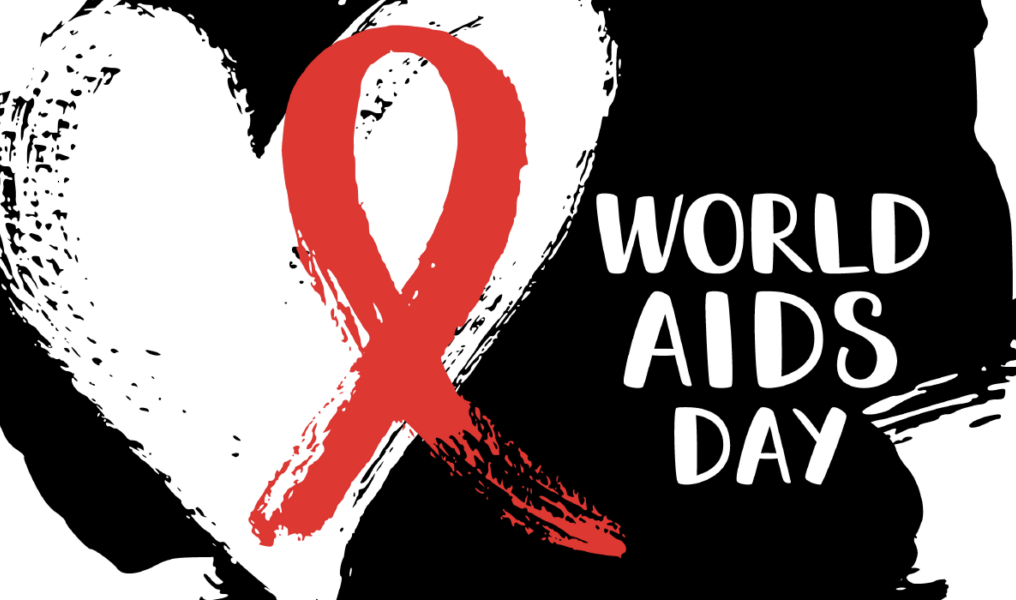As Michigan's capital city was flooded with thousands of cars, causing backups and snarling traffic for hours in late April to protest to governor's stay-at-home order, Jake Distel was caught off guard when he recognized the familiar sense of loss and threat.
"We saw the same things, people were dying of HIV and no one seemed to notice or care," said Distel, executive director of the Lansing Area AIDS Network. "There was a denial of the reality we were living. There was a denial of what the risk was. There was a dismissal of who was being impacted, and lost. Then, it was gay men. Now it's the elderly."

Jake Distel
This year has brought a seachange of reality across the country and the state as the novel coronavirus pandemic has cut a swath through communities, particularly communities of color. It's forced the shutdown of normal operations of everything from medical care delivery, to office work, to retail.
The organizations working to prevent HIV and support those living with HIV have also faced off with an unprecedented series of obstacles that have left them struggling to connect with clients, to provide basic prevention services and, most importantly, to deliver the human presence and support necessary for a population usually perceived as untouchable. And all of this had to be accomplished within already overburdened and strictly regulated funding streams.
The Beginning of a New, Distanced Normal
To see the true impact of COVID-19 on people struggling with HIV/AIDS it's perhaps best to take a look through the eyes of the organizations working to stop the virus and their reliance on in-person care.
Earlier this year in February, the board of Unified — a nonprofit HIV health organization in Metro Detroit — felt it was important to hire a turnaround specialist in nonprofit management Kevin Howley for a short-term post as the organization's interim executive director. Howley, who has been working with nonprofits for two decades, said he expected to serve six months while the board did an unpressured search for a new, permanent leader for the agency.
Then, March 10, as returns in the presidential primary election were being tallied, Whitmer and her team were notified of a positive COVID-19 test for an individual in Oakland county.
"All heck broke loose," Howley said in a phone interview.

Kevin Howley
Within 13 days, Whitmer had availed herself of emergency powers and ordered non-essential businesses in the state to shutter to prevent the spread of the new virus and protect overwhelmed health care facilities in Metro Detroit.
Howley, as well as Teresa Spring of Wellness AIDS Services in Flint, Distel of LAAN and Kelly Doyle of CARES, shut down their operations to comply with the orders and protect their staff and clients from the strange new respiratory virus.

Teresa Springer
The organizations, which normally rely on face-to-face communication and connection with clients and the community, found themselves in an unthinkable situation. They could not provide the needed human elements of their job — touch, smiles, being physically present.
"We weren't having clients come in," said Ligia Romero of LAAN. "We were making calls. That's just not LAAN. It threw us for a loop. Face-to-face allowed us to discern how our clients were actually doing. They could tell us they were fine over text or by phone, but when they were there in person, we could see they weren't fine."

Ligia Romero
In Flint, Wellness leaders Springer and Stevi Atkins had been watching the progress of the virus since it was confirmed in Washington state. By March 16, just six days after the state of Michigan confirmed its first case of COVID-19, Wellness shut down its operations. Staff worked from home. The agency's popular and effective syringe exchange shifted from a weekly event to a biweekly event. That continued through the end of May. The agency ultimately shifted its operations to allow limited in-person connections, but it ran support groups, most document signing and food deliveries remotely.
LAAN, CARES and Unified all took actions early on that echoed Wellness' actions. All of the agencies invested heavily in personal protective equipment like gloves and masks. The Michigan Department of Health and Human Services, which distributes federal monies for the Ryan White programming and HIV prevention and care in the state, shifted rigid grant outlines of how the federal dollars could be spent, allowing agencies to invest in more food and housing supports, and to distribute PPE for their clients.
Thinking Outside the Box and Unprecedented Wrinkles
As the state saw its COVID-19 numbers drop, the organizations found themselves facing decisions about how to continue to deliver their services without placing staff or clients at risk. This drove the agencies to "think outside the box," as Romero said.
The needs for social support and conversation that HIV often causes for people living with the virus means agencies run various support groups. LAAN, CARES and Wellness moved each of their support groups to online systems. Unified, Howley said, continued the meetings in person
"We'd hold those under a tent in the parking lot, to keep the sun off people," he said. "Or we would set up between buildings when there was wind."
That model, he noted, is not likely to continue as Michigan moves into winter, leaving the agency contemplating how to create accessible support programs for a client base that may not have access to the technology to connect virtually.
COVID-19 also caused a parallel crisis, agency workers said. As the economy shut down, then slowly reopened, many people living with HIV found themselves struggling with housing and food security.
Each of the agencies receives money through the federal Housing Opportunities for People with AIDS program, but that funding is tight. Agencies reported their needs quickly, and just as quickly overwhelmed the resources available.
While each of the mentioned Michigan agencies had a food bank at the start of the COVID-19 pandemic, the crisis led to overwhelming demand.
"That demand increase caused us to use Uber and Lyft to deliver food," Howley said. "The clients often had no way to get to us. But that also increased out costs significantly."
Springer said the clients in Flint received deliveries directly from staff. And Romero said the delivery of food was a wrinkle that was unexpected.
"We had to call people and tell them we were coming to deliver the food," she said. "But it also meant telling them that they couldn't come out to see us. That we couldn't see them."
Access to Care and Prevention
Doyle, of CARES, said clients expressed reluctance about attending medical appointments. They were concerned about COVID-19 exposures and the potential added risks to their health. Some of the providers were able to accommodate these concerns by using telemedicine.
"Not all of our providers had that, though," Doyle said.
That left clients struggling to maintain their medical care, while also preventing exposure to and potential infection with coronavirus.

Kelly Doyle
Each of the interviewed agencies all noted that testing numbers are way down currently. At Wellness, Springer said they the organization went from conducting about 300 tests every three months to just 58 in the last quarter. While testing at her agency has ramped up, it requires appointments, PPE and strict mask and social distancing.
"The only time there is a break in the six-foot rule is when the blood sample is collected," Springer said.
Rapids HIV tests require a finger poke. A drop of blood is collected in a pipette and delivered to the reagent and the test system. With an airborne respiratory virus a lingering fear, each of the agencies had to reimagine the use of their space for testing. In Lansing, LAAN lost access to its Old Town testing location with the shutdown, so Prevention Director Nhoua Yang and the team developed new ways to deliver it. She instituted appointment-only "drive-through" testing. That testing is arranged online and is mostly done on Tuesdays. In extreme cases, where a testing client does not have a car or transportation, the agency has been doing home testing with online support.
Other agencies shifted testing to the largest room in the facility, adding fans and air filters, and requiring strict adherence to masks and social distancing.
Howley said that while testing continues in limited ways at Unified, he is concerned about the decline in it overall.
"We sort of have a built-in connection with those who already know they are positive," he said. "They are our clients. We know who they are. But the people who are at risk, who may be positive, who aren't getting tested, that's a problem."
Complicating other testing offerings, Doyle from CARES noted that throughout the pandemic there has been a shrinking inventory of gonorrhea and chlamydia testing products, too, which has reduced the agency's ability to screen for the bacterial STI. State officials said the shortage is the result of a diversion of production for the testing parts to the production of COVID-19 testing pieces. Unfortunately, this comes at a time when Michigan has announced dramatic increases in gonorrhea rates across the state.
Two Pandemics: Parallel Racial Disparities
An estimated 18,970 Michiganders were living with HIV in 2019 — the last year for which data is available. The majority are Black, male and have gotten the virus through sex with other men — a stubborn reality of the HIV pandemic for at least two decades.
That data also reveals that only 84 percent of people who know they are HIV positive are in care, and of those in care, 89 percent have suppressed their virus with medication. Viral suppression is a key tool for the health of a person living with HIV as it prevents disease progression and has the bonus side effect of preventing a person from transmitting the virus to their sexual partners.
The racial disparity of HIV in Michigan has also been present in COVID-19 cases since March 10. Black Michiganders lead the state in infections per million residents. This glaring and crushing reality pushed Gov. Gretchen Whitmer and Lt. Gov. Garlin Gilchrist to institute a racial equities task force to explore the underlying causes of the COVID-19-specific disparities.
Financial Stress: The Unrecognized Pandemic
Unlike other nonprofits, most HIV/AIDS service organizations are boxed in with restrictive grant funding. Those funds, distributed from the federal government to the state and then to groups, come with strings that restrict how much money can be spent on administrative costs and where and how the money can be spent.
That restrictive funding stream puts organizations behind the eight ball when weathering a crisis like COVID-19. While some of the restrictions were lifted due to COVID-19 — freeing up cash for PPE, additional food and allowing additional support in housing — the reality is that as funding authorities deal with the same work-from-home restrictions, the HIV/AIDS organizations in Michigan being choked.
Howley said his agency, has $1 million in receivables due from months ago. The agency has been able to float the money while it waits for the payments, but that has required taking out loans diminishing from the bottom line. The agency, in order to serve people who inject drugs, had to purchase a second outreach van — an expensive proposition in the middle of a second pandemic.
"That's expensive," he said. "The reality is that we are struggling. We do not have a deep donor base."
He said the lack of donated dollars, which become unrestricted dollars for the agencies, are down dramatically. And the agencies face an uphill battle in raising funds.
"HIV just isn't an issue anyone thinks about when they do their giving," he said.
He put the blame on a misconception, driven by the increased lifespans and health of people with HIV, as a key barrier in raising funds.
"People don't see it as an issue," he said. "As we come into the holiday season, the giving season, I really need people to understand that agencies need their donations now more than ever."










